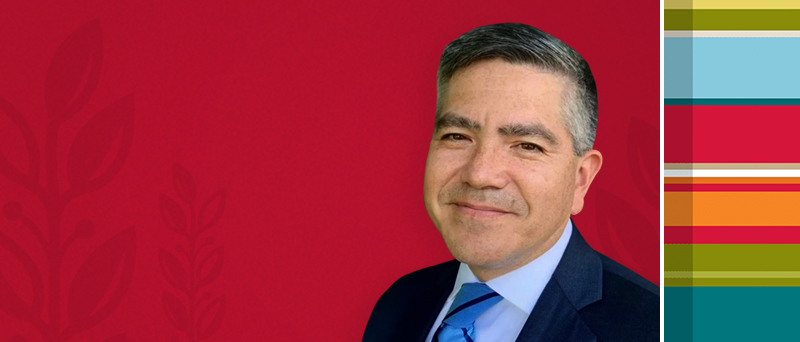This website uses cookies
We use cookies to ensure that we give you the best experience on our website. If you continue to use this site we will assume that you are happy with it.

The three years Shane Cooper ’03 spent as a student at Cornell Law School propelled him to a full career as a Navy judge advocate. In January, Cooper returned to Cornell as the Law School’s new associate dean of admissions and financial aid.
“When you are an alum of the school, it’s very easy to be able to explain Cornell Law’s value to incoming students,” Cooper says. “Because I’ve personally experienced life as a student at this great institution.”
Cooper first came to Cornell in his late 20s after serving as a nuclear submarine officer. “I felt like I had gone through some formative experiences already in the Navy, but there’s nothing like law school,” he remembered. What sticks most in his mind is the professors, some still actively teaching at Cornell: his small section Torts class with Jeffrey J. Rachlinski, Barry Strom’s Legal Aid Clinic, Contracts with Winnie F. Taylor, Civil Procedure with Kevin M. Clermont, Professional Responsibility with W. Bradley Wendel, Lawyering with Estelle M. McKee, Public International Law with Muna B. Ndulo, and John H. Blume and Sheri Lynn Johnson at the Death Penalty Project, among many others.
After graduating, Cooper served in JAG postings throughout the United States and in Bahrain and Iraq. His military career culminated as the head of the Naval Justice School in Newport, Rhode Island, teaching new law school graduates about military law and preparing them to be attorneys in the military. With Cooper’s time in the Navy ending, he realized that he wanted to make a future in higher education, and in 2021 he joined the University of New Hampshire Franklin Pierce School of Law as the associate dean for administration and enrollment.
“What attracts me to the admissions side is meeting all sorts of people with ambition and finding the next great generation of talented attorneys that our society needs,” Cooper said.
Cooper comes to Cornell Law School in the middle of a recruiting cycle, and, with the help of his team, is taking point as the school responds to a changing admissions landscape in the wake of the Supreme Court’s Students for Fair Admissions v. Harvard decision. The Law School is doubling down on building new pipelines to assemble a large and diverse pool of candidates in order to attract a strong class while still complying with the Court’s recent ruling. The cohort Cooper is currently recruiting will also be the first admitted under an adjusted financial aid policy that will strive to meet demonstrated need, in addition to reflecting merit-based factors.
Jens David Ohlin, the Allan R. Tessler Dean of Cornell Law School, describes Cooper’s hiring as a “no-brainer,” citing his experience inside the complex, service-oriented organization that is the military, as well as his aptitude for strategic planning. “A lot of people can give a speech and say, ‘Well, this is what makes Cornell great.’ Shane can do that as well,” Ohlin said. “But then he can say, ‘When faced with the same decision, I chose Cornell, and I think you should make the same decision that I made many years ago.’”
For now, Cooper is concentrating on reconnecting with what the Law School looks like today, talking to students and alumni about their priorities. But he’s mindful of the influence of his own past as well. “In the military, you’re really incentivized to help each other grow and learn, because we all start young and we build our leaders through an upward path of career progression without the benefit of lateral hires. There is a service culture of developing those who are following in your footsteps and helping them mature, progress, and become the next generation of leaders and experts within the organization,” said Cooper. “Essentially, that same culture is ingrained in me—of wanting to help others progress in their goals.”